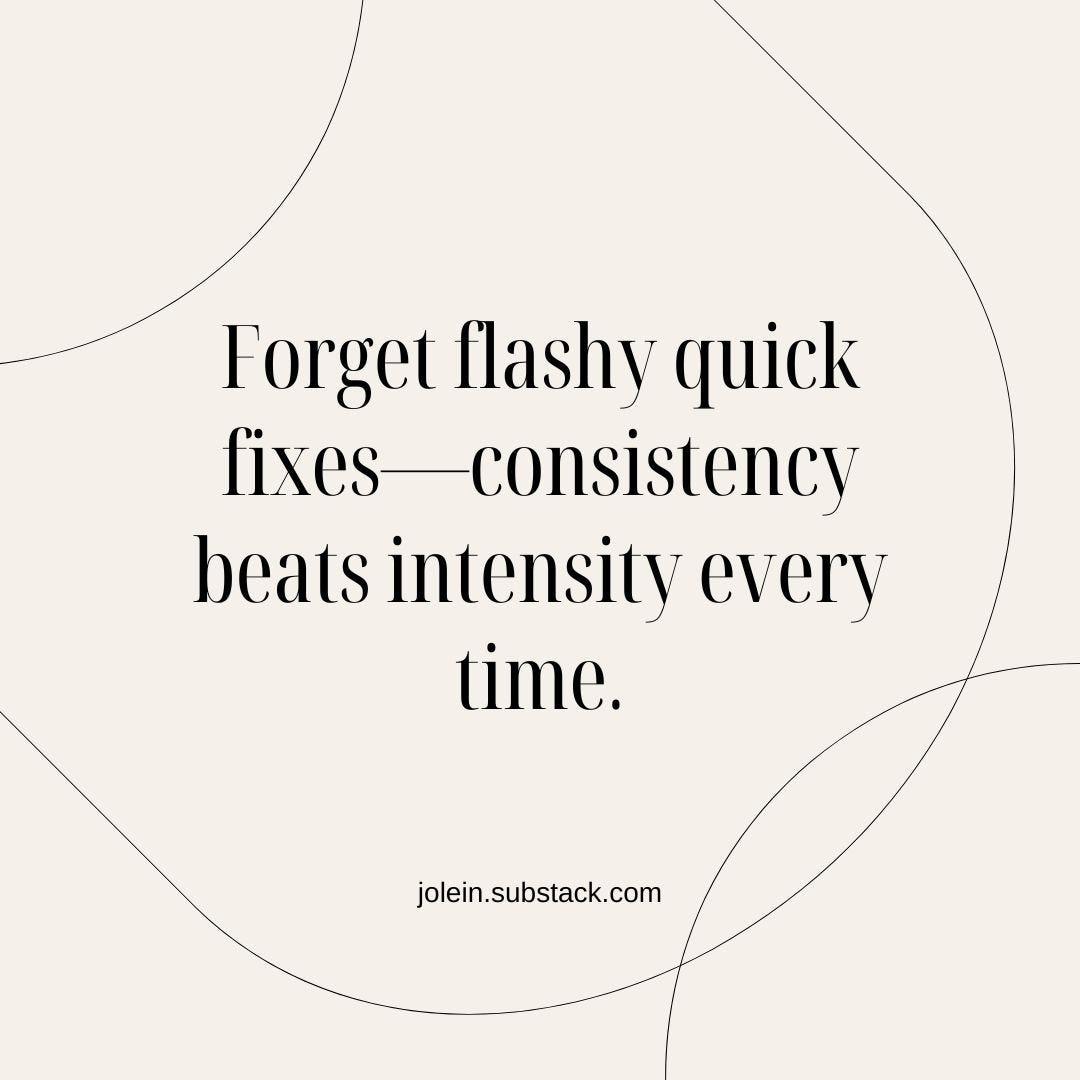I've been trying to convince my husband1 to start exercising consistently. I've gently pointed out—more times than he cares to hear—that shorter, consistent workouts would yield better results over time than going to once a week for a more intense experience. Coaching teachers operates the same way—it's the consistent engagement, rather than occasional bursts of intense effort, that truly transforms practice.
As the saying goes, "Consistency is like pregnancy—you either are or you aren't." There's no middle ground. Effective coaching isn't about occasional, intense interactions but regularly showing up to support, guide, and build habits that lead to sustained growth.
Coaching is engagement. When we engage consistently with staff, we invest in building habits and mindsets rather than merely addressing surface-level actions. James Clear, in his influential book Atomic Habits, emphasizes this point: "You do not rise to the level of your goals. You fall to the level of your systems." Coaching must consistently reinforce the systems staff have in place to ensure meaningful and lasting change.
Consistency Over Intensity
But what happens when you can't perform a full coaching cycle? Does coaching stop being impactful? Absolutely not. Consistency doesn't always mean long meetings or formal observation cycles. Consider:
Check-ins: Short, informal conversations to review action steps and progress. How’s that turn-and-talk going?
Micro-observations: Quick classroom visits with brief, actionable feedback. I notice your turn-and-talk today! Try assigning who goes first so they get started faster. Let’s check in next week when I can have more time. Keep it up!
Reflection Prompts: Written prompts or emails encouraging reflection on current practices. I know I wasn’t able to get into your classroom this week. When you get a chance, I would love to hear what you have noticed from implementing the turn-and-talk.
Peer Collaboration: Facilitating brief, focused discussions among colleagues about shared goals or challenges. Mr. Roland is started doing turn-and-talks last semester and he has a great protocol. Why don’t you check in with him this week and I’ll check in about it next week?
Why is this type of accountability essential in coaching? Because without it, motivation can wane, and old habits easily creep back. Just as consistent gym attendance maintains fitness and builds strength, regular coaching check-ins maintain and build effective teaching practices.
"Success is the product of daily habits—not once-in-a-lifetime transformations." - James Clear, in Atomic Habits
Coaching is all about habits. Forget flashy quick fixes—consistency beats intensity every time. By prioritizing regular engagement and accountability, we help educators internalize the habits and mindsets that fuel daily growth.
Sorry, honey. Love you.





